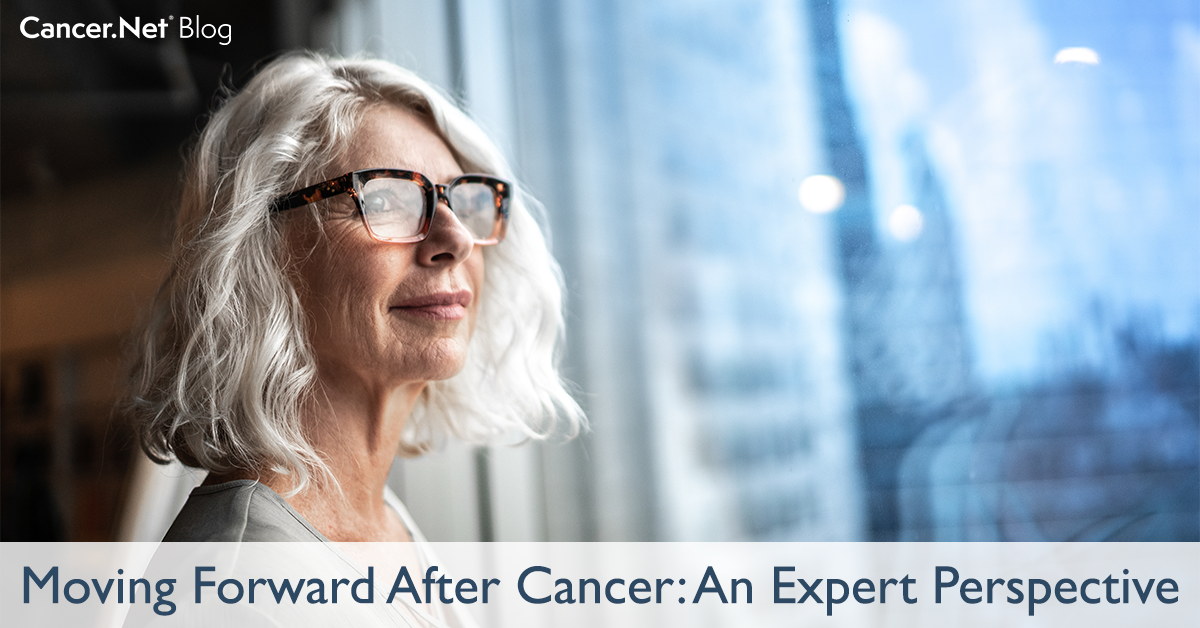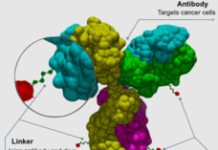
Andrew J. Roth, MD, is an attending psychiatrist at Memorial Sloan Kettering Cancer Center (MSKCC). Dr. Roth has been the psychiatry liaison to the Prostate Cancer and Genitourinary Medical Oncology Program at MSKCC for the last 28 years. He was also the training director of the MSKCC/New York Presbyterian Weill Cornell ACGME Accredited Fellowship in Consultation-Liaison Psychiatry/Psycho-Oncology for 12 years. Dr. Roth is a Psychosocial Oncology Advisory Panelist for Cancer.Net.
A cancer diagnosis can create an unfamiliar fork in the road of life that no one wants to travel. In fact, after being diagnosed and treated for cancer, many people have the hope or expectation that life will get back to their “old normal,” or at least that they can look forward to a “new normal.” That may be possible for some. But for many others, that fork implies there may be other unforeseen and unfamiliar detours ahead in life, either related to the cancer or to worries about other traumas down the road.
During survivorship, fear and hesitancy may exist even if the cancer is treated successfully and the words “cure” or “full remission” are used. Expectations and dreams that you had before cancer treatment may become clouded as you consider whether those goals are still relevant. In addition, there may now be the “elephant in the room” reality-checker when a cancer diagnosis lifts the curtain on the reality of death—a curtain that most of us try to keep pulled closed.
So, what can you do to adjust to the road ahead after cancer? Will you be able to act like an automated GPS system that has taken a detour, automatically recalibrate your path into the future, and have a satisfying arrival at your destination? How will you deal with the possibility that some goals are no longer feasible, or perhaps not relevant? How long will it take to develop that sense of certainty about tomorrow that existed before your cancer diagnosis, even if “certainty” is now understood to be fluctuating?
The cancer success dilemma
Mary was diagnosed with breast cancer. She had surgery and finished radiation therapy and chemotherapy. Mary’s husband, sister, and mother all said, “Congratulations! You’re finally done with treatment! You should be happy, but you look scared and sad.” Mary replied, “I am scared! How does anyone know this won’t come back? I’m no longer doing anything to fight the cancer. I liked my body the way it was before. You know, once the impossible happens, you wonder why it can’t happen again.”
Another patient, Joe, got to ring the bell indicating the end of his radiation treatments for prostate cancer. Joe had looked forward to ringing that bell, but now, he had a nagging feeling that he might be jinxing himself. He kept wondering how his doctors could know that they got every cancer cell.
Post-treatment is when your contact with supportive cancer care providers begins to lessen. Patients have completed treatments to fight the cancer, and they are often left with concerns about the future. There are many more cancer survivors in 2022 than in past decades because of diagnostic and treatment advances, yet cancer is still feared as a potential death sentence. Even successful, lifesaving surgery, radiation therapy, or chemotherapy can be difficult to endure, and they sometimes leave physical or emotional scars.
Many cancer survivors look forward to regaining their energy and emotional vitality after treatment. They anticipate finding some silver lining after having their life threatened—of not just surviving but appreciating life more than ever and finding the benefits of what some have called “post-traumatic growth.” But many other cancer survivors find that their distress does not disappear but rather increases as they wonder whether the cancer will come back. They worry about their next set of blood tests or next imaging scan, a type of anxiety called “scanxiety,” to see if the cancer has returned. People who still have brain fog after chemotherapy may wonder if they will be able to do their jobs again, and they may start to question if they need to reassess their short- and long-term goals.
Finding alternative solutions
For many, their memories of what life was like before cancer may not be entirely accurate, and this can set unreasonable expectations for life after cancer. Life is rarely experienced in the moment as always wonderful and happy, but the usual ups and downs of everyday living do not compare to a life-threatening cancer diagnosis. Many survivors try to get back to their pre-cancer lifestyles or try to accept any physical or emotional changes that have occurred as a result of their cancer diagnosis or treatment. But with body image changes after treatment, ongoing brain fog, or physical fatigue, feeling like your “old” self may be an unrealistic goal.
When your mind lingers on how good the past was or dwells on fears about what will happen in the future, try to become aware of what is happening rather than trying to avoid the feelings or thoughts or becoming overwhelmed by them. Many find that learning mindfulness meditation techniques helps with this process. Try to become aware that the experiences you have had with cancer are part of your being alive now, and the fear of the cancer coming back is understandable.
It may be helpful to validate the experiences and emotions you had during cancer by grieving for what you have lost. For instance, if you had surgery to remove breast cancer and had reconstructive surgery, your breasts may never feel as they once did to you or a partner. Or, if you had your prostate cancer removed with a prostatectomy, sex may never feel as spontaneous as in the past. But only focusing on what was lost from your past, or worrying about the future, can become the most prominent detour from living your day-to-day life with meaning, purpose, and joy.
Survivors are often advised to try to take life one day at a time. That does not mean you should not have plans, but frequent worrying about whether or when those plans will happen will not make them more or less likely to happen. Instead, they will steal some or much of the joy in your “now.”
Attending to mindfulness with the DRAFT technique below may help you reframe unhelpful thoughts, emotions, or behaviors:
-
Detect the thought, emotion, or behavior from the past or about the future that is making you feel uncomfortable.
-
Recognize the rational and irrational or unhelpful aspects of that thought, emotion, or behavior.
-
Acknowledge how they can be helpful or not.
-
Flip them into what is good in the present.
-
Transform them into straightforward tasks to cement yourself in the present.
Some people find that journaling or writing about their reactions to their life change and their fears of recurrence or death allows their brain to do what it does well: think, but not get stuck on living in the past or future during the present.
Exercising and eating better may also help physical and emotional well-being after cancer treatment. A philosophy of starting exercise at an easy level, regardless of how active you were before your cancer diagnosis, and progressing slowly allows for healing and for adaptations to be made. Even 20 to 30 minutes of walking most days of the week can improve your concentration, energy, sleep, anxiety, and mood.
This slow and moderate approach can be applied to the expectations and attitudes we carry as well. One of my patients said he became more comfortable maintaining aspirations rather than expectations. The glass of life can often be seen as half full, even after a cancer diagnosis, if we look with the proper perspective. Think about what is good in your life that you are grateful for and that gives you pleasure. It can be obvious, such as your children, family, or career, or it can be more abstract, like enjoying flowers emerging in the spring, listening to music, or seeing a lovely painting in a museum.
Think about your realistic goals for the immediate future and those for the distant future. Structure is helpful for keeping our lives on track, but try not to live your life by a calendar. “Bucket lists” may help some, but others may be at risk of developing a mindset of rushing towards the end as opposed to living where they are.
Adjustment to life after cancer treatment is a process that may take time and ongoing effort. Realize that awareness and ongoing changes may be needed.
The author has no relevant relationships to disclose.





